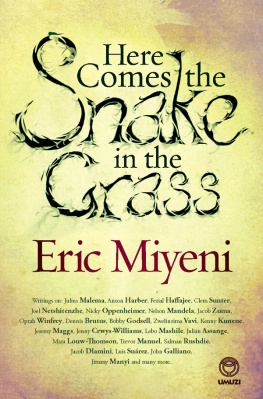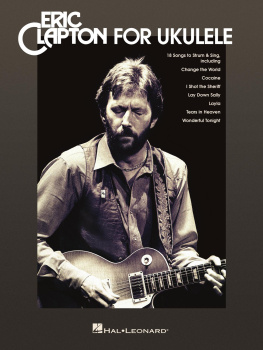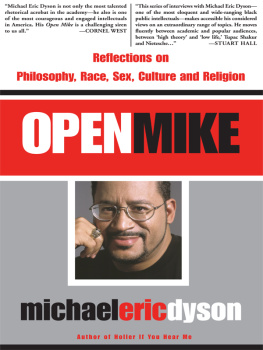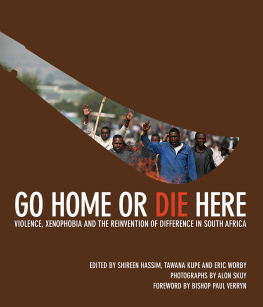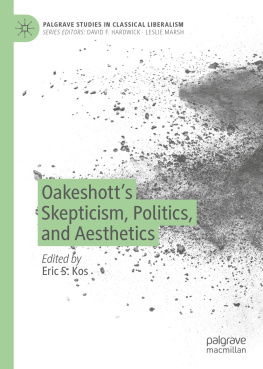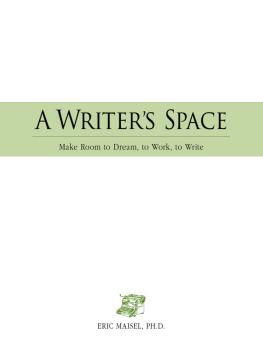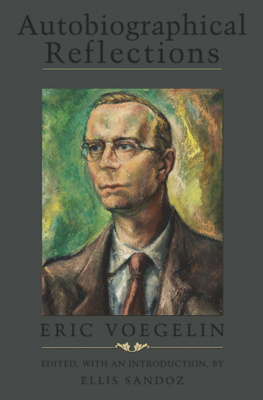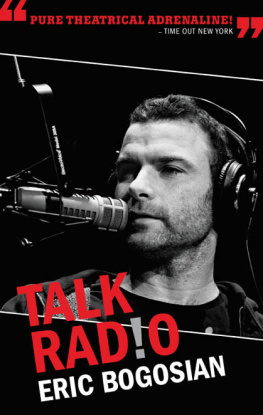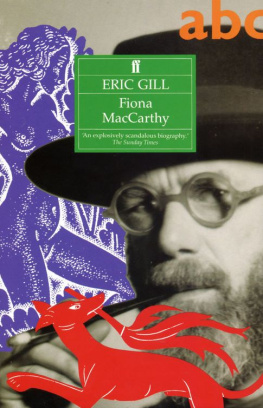BY THE SAME AUTHOR
The Only Black at a Dinner Party (2006)
Before Mandela was Mandela (2007)
A Poetic Journey (2008)
A Letter from Paris (2010)
The Release (2012)

Published in 2014 by Umuzi
an imprint of Random House Struik (Pty) Ltd
Company Reg No 1966/003153/07
Estuaries No 4, Oxbow Crescent, Century Avenue, Century City, 7441, South Africa
PO Box 1144, Cape Town, 8000, South Africa
www.randomstruik.co.za
2014 Eric Miyeni
All rights reserved.
No part of this book may be reproduced or transmitted in any form or by any means, mechanical or electronic, including photocopying and recording, or be stored in any information storage or retrieval system, without written permission from the publisher.
First edition, first printing 2014
1 3 5 7 9 8 6 4 2
ISBN 978-1-4152-0705-5 (Print)
ISBN 978-1-4152-0598-3 (ePub)
ISBN 978-1-4152-0599-0 (PDF)
Cover design by Jacques Kaiser
Text design by Fahiema Hallam
Set in Minion Pro
For Bongani Kheswa. A brother. A believer. Rest in peace.
CONTENTS
PREFACE
The opinion pieces in this collection were first published in Afropolitan magazine between 2013 and 2014, and in the Sowetan between 2010 and 2011 before I was fired from that newspaper and, to my utter horror and amusement, made the international news for that reason. In addition, we have included a number of previously unpublished pieces.
Each article was written with a view to providing an insight with a longevity of relevance, although one would have hoped that some of what is written about here would be outdated by now. As it is, change is a slow-moving beast and the pieces still have bearing as I write this, even if its purely entertainment value.
What you will read here are my personal observations and opinions in essay form. I am glad that you have this book in your hands. It is partly through reading that we get our brains to take the occasional jog, do a few push-ups and lift some weights to sharpen their functioning.
Thanks for choosing this brain gymnasium.
ERIC MIYENI
JOHANNESBURG, 2014
PART I
A blueprint for the Future
1
Did Mandela work for nothing?
A man who should have been given the death penalty was given a life sentence. That man could have died in jail, but he did not. Instead, he lived to help negotiate a virtually bloodless handover of power from his jailers to his people.
That done, he managed to stop his people from seeking revenge and led them to the reconciliatory path that they have followed to this day and thus created what is now known as South Africas political miracle.
I love this Mandela-driven part of our history as a country.
In politics, we chose to make peace with the past, leave it back there where it belongs and, together, looked to the future and asked, united as one people, what we would like to see there, what country we would like to build, explaining that this was the best way to forge this unlikely marriage between the oppressor and the oppressed.
It was not an easy marriage to bring to life because we came from such different worlds. But in the end we agreed on a common view on how to handle religion. We came to an understanding about how to view sex and sexual orientation. We were in sync about our political systems and the politics we wanted our country to subscribe to. And so you can argue that we tackled the hardest issues and came to the conclusion that we could go down the aisle for better or for worse until death us did part.
Sadly, though, like many couples who marry, we never discussed financial issues.
This is a serious oversight, because over 50 per cent of all marriages that end in divorce do so because of financial incompatibility. For a country like ours, where the marriage covenant is between the super-rich and the hungry and homeless, a disagreement that leads to the possibility of divorce could be deadly.
This is not difficult to understand, given that there is very little use for freedom if you have no money to enjoy it with. What is the point of having the freedom to live anywhere you want to when you cant even afford the cost of materials to build a shack?
By extension, the constitution holds no value for those among us who have nothing to protect. If my life is riddled with disease, without education, and marked by starvation and joblessness, what value does the right to life hold for me? And if my life has no value to me, what value can your life have in my eyes? If I dont value life, who around me is safe? And if we are not safe, how can we call ourselves free?
This brings me to the sad conclusion that South Africas Mandela-driven political miracle might be a house of cards, a flimsy structure, built on quicksand; a disaster, really, waiting to happen, because too many among us have no means with which to enjoy what it has to offer.
And so I have had to ask myself: Why is it that words like empowerment have become swearwords? Why have phrases like economic freedom become so thoroughly feared? And since when has the desire for wealth become a dirty desire?
I was being interviewed on Radio 702 once. This young white man called in and said that he was leaving the country because, as a qualified metallurgical engineer, he could not get a job in this country. He said he had gone to an interview where at the end he had been told that unfortunately he could not be hired because the position was reserved for blacks.
I asked him why he had been interviewed for an hour before anybody realised that he was white and therefore the wrong candidate for the job on offer. He said he did not know. I reminded him how long it takes to produce a metallurgical engineer and how few of them there are worldwide, and asked him if he was sure that the company was willing to wait that long, some sixteen-odd years, simply because he was white and they wanted blacks. He seemed confused. Then I said to him, Son, go and brush up on your interview skills. I am convinced that your interviewer did not know how to tell you that you did something wrong in the interview, that you did not fit his companys profile somehow, and he lied to you.
We are constantly being fed the untruth that every time a white person fails, a blueprint for the future it is because there is a black person standing in the way. We are being fed the lie that black prosperity equals white poverty. When this rubbish is fed to us every day, we become an economically divided society with two communities standing against each other, instead of standing together to prosper in unison.
The desire for South Africas economic success should be driven by the desire for each and every South African to see no South African living below the middle-class level. The fear that has been instilled in us is of the financial success of the other; the warped belief that one groups success signals the demise of the other is unhealthy and wrong. It is holding us back from realising our truest potential as a nation.
Since 1994 the rich of this country have become even richer than they could be under apartheid, richer than they had ever dreamed! During the same period, the gap between them and the poor has grown to the point where we have now surpassed Brazil, which held the dubious distinction of having the widest gap between the rich and poor for quite some time. Ironically, South Africas political miracle has resulted in the impoverishment of the very people who brought it about.
If the wealthy of Zimbabwe had not hogged all the riches after liberation, if they had not refused to hire the poor Zimbabweans that Robert Mugabe had educated to the highest levels, and if, instead, those moneyed Zimbabweans had said to their poor counterparts, We might come from a politically divided past, but we will forge an economically united future with you, then Mugabe would not have had anybody to incite to kill people, plunder and ruin Zimbabwes economy. Selfishness in the face of a generous people is a recipe for disaster.
Next page
